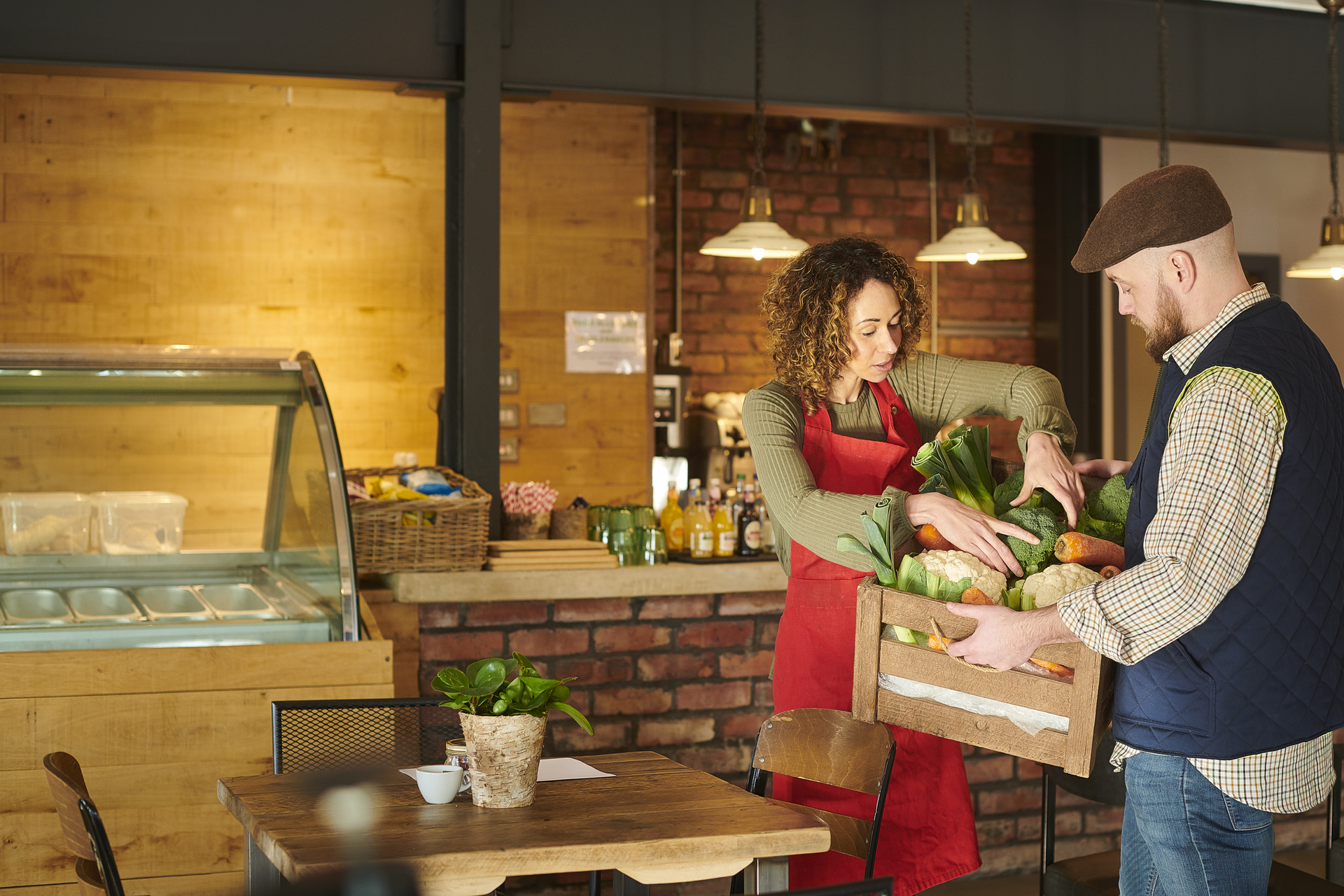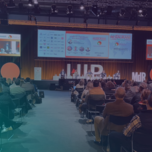How to achieve sustainability in hospitality businesses

Sustainability in hospitality: how to make an impact
Sustainability is now an everyday word. We all know that we must improve our business practices to help combat climate change and secure our long-term business survival. But with 931 million tonnes of food going to waste every year, and 26% of waste is attributed to the food service sector, we clearly aren’t doing enough.
Some of the larger multinationals are leading the way and have established strategies for sustainability in hospitality. However, many companies aren’t sure where to start or are struggling with the other major issues facing the sector now and can’t see the wood for the trees.
In the meantime, legislation in environmental sustainability, food traceability and labelling, diversity and equality with similar regulations in Europe means that it’s time make this a priority.
The United Nations have set out Sustainable Development Goals (SGDs) and Net Zero targets to pave the way. But how can you implement real change in your hospitality business? In the article, let’s look at what you can do to make a difference.
Corporate social responsibility: consumers have reimagined their values
A report by Accenture in 2021 revealed that 50% of 22,000 global consumers said they have reimagined their values and now base their purchasing decisions on factors beyond price and quality.
66% now expect brands to take more responsibility in motivating them to live by their values and make them feel more relevant in the world
66% said they now expect brands to take more responsibility in motivating them to live by their values and to make them feel more relevant in the world
65% are attracted to brands that source services and materials in highly ethical ways. Reimagined consumers want to know what goes into a product, how it’s produced and how far it’s been transported.
65% of reimagined customers are attracted to doing business with environmentally friendly brands.
Essentially, it’s never been more important to focus on becoming a more sustainable hospitality business and putting corporate social responsibility at the heart of everything we do.
So, where do you start with sustainable hospitality?
With so many goals and areas to consider, it’s easy to feel overwhelmed. Thankfully there is help on hand. The Sustainable Restaurant Association (SRA) is a not-for-profit organisation founded 12 years ago and today helps some 7300 restaurants across the UK.
The organisation works with partners ranging from single sites to large corporations, businesses from across the entire food service sector, like-minded industry bodies and campaign groups.
SRA Managing Director, Juliane Caillouette-Noble, explains, “We’ve developed a matrix of criteria and turned it into an assessment that businesses can do to measure their current sustainability performance. It helps you identify where you need to improve, and we can help with an action plan to help you drive it forward.”
However, there are three basic starting points that Juliane recommends:
-
Reduce energy consumption
-
Measure and reduce food waste
-
Make an action plan
Cate Liverani is Marketing Manager for Camile Thai, an award-winning premium Thai restaurant group in the UK & Ireland. The brand has been leading in sustainability initiatives in recent years, and developed their strategy with the help of the SRA.
In the first instance, Camile Thai focussed on more attainable, customer-focused goals such as compostable packaging and a pledge to remove plastic bottles from their restaurants. For the next year, the brand is ensuring all dishes are carbon counted through their partner app My Emissions. It will also be training their staff on the sustainability strategy through the Flow Learning platform and finding a charity partner to help offset their carbon emissions.
What can you do to become a sustainable hospitality business?
As you can see, sustainability is a broad theme and covers many aspects of our lives and business. Let’s look into some areas where you can improve your performance.
Reduce energy consumption
According to the Carbon Trust, energy costs for the hospitality sector are over £1.3 billion, and the industry is responsible for 8 million tonnes of carbon emissions.
Typically, the main contributors in our sector are heating and cooling, lighting, hot water, and catering equipment. Investing in energy-efficient appliances and equipment may seem more expensive in the short term. Even so, you’ll be helping the planet and your bottom line in the longer term.
Ensuring your equipment is regularly monitored and maintained will lengthen its lifespan, increase efficiency, and ensure health and food safety. Facilities by Mapal is a comprehensive facilities management system that can help you digitise all your maintenance needs. What’s more, you’ll significantly reduce paperwork and admin, and avoid downtime, saving you money.
Responsible sourcing
Recent supply chain issues and pressure to become more sustainable means that buying local produce as much as possible makes more sense. It positively impacts the environment, the local community, and meets increasing customers’ demands.
This may be more difficult for smaller businesses that have less bargaining power. Coupled with legal requirements to obtain documentation of the origins of all food, sourcing responsibly without exceeding the budget is a huge challenge.
You can achieve this by choosing a kitchen inventory and waste management software like Easilys f&b by Mapal and having all supplier, ingredient, and cost information in one place. The tool will enable you to standardise menu cards across all sites, measure waste, update stock lists and orders automatically and ensure you comply with all labelling laws.
Reduce food waste
As hospitality organisations, we need to ensure we tackle the food waste issue directly to contribute to the big picture and improve our own business sustainability and our bottom line. Here’s a summary of the different ways to reduce food waste:
-
Simplify your menus to avoid throwing away unused ingredients
-
Measure plate waste to monitor customer behaviour
-
Reduce portion sizes for ingredients customers are wasting
-
Reutilise food waste and turn them into a second dish
-
Efficient stock control through accurate ordering and stock rotation
-
Predict food orders with an appropriate software solution
-
Compost if your business has a vegetable garden
-
Engage your team: they are often the best source of ideas
Choosing a kitchen inventory and waste management software such as Easilys f&b will help you reduce waste more efficiently. Your team can easily manage orders, stock control and waste measurement through a simple and mobile-friendly app, saving time. The solution will help you standardise portion sizes across your business, measure waste and update future orders as each dish is sold.
Plant-forward or plant-based menus
Apart from the fact that livestock production is responsible for a significant part of emissions and greenhouse gases, more and more customers are showing an interest in plant-based menus and making healthy food choices.
Having introduced its carbon counting initiative, Camile Thai reports that the carbon count of dishes containing meat is typically higher than plant-based options. By introducing more plant-based meals into its menus, has brand reduced the proportion of meat they offer. “We want to help our customers make healthy food choices that are better for the planet, but essentially, it’s up to them. About 15-20% are choosing plant-based meals.”
Sustainable restaurant design
Restorative design is the central concept behind Object Space Place, a sustainable design agency specialising in restaurant fit-outs. Founded by David Chenery and Brendan Mullard, the studio helps single or multi-site restaurant chains fit out new and existing stores using the principles of a circular economy.
David explains that “reusing existing elements by repurposing materials for a different use can save up to 50& of refit costs.” And this is exactly what Gail’s Bakery have done through their work with OSP, by respraying chairs from an existing site refurb and using them in a different one.
Looking after your people
Perceptions of hospitality careers have changed, and employers now have to rethink their offering with good working conditions, flexibility and encouraging a healthy lifestyle and work-life balance.
But finding a balance can be tricky in a staff shortage, not to mention dependence on many part-time workers, students, etc. Technology can play a crucial role in helping managers plan shifts while keeping teams happy, reducing overall labour costs, and improving productivity. Click here to see how Mapal Workforce can help you achieve all this, saving you time and improving employee satisfaction.
Read more about how industry leaders tackle sustainability by downloading our whitepaper, Becoming a sustainable hospitality business.




